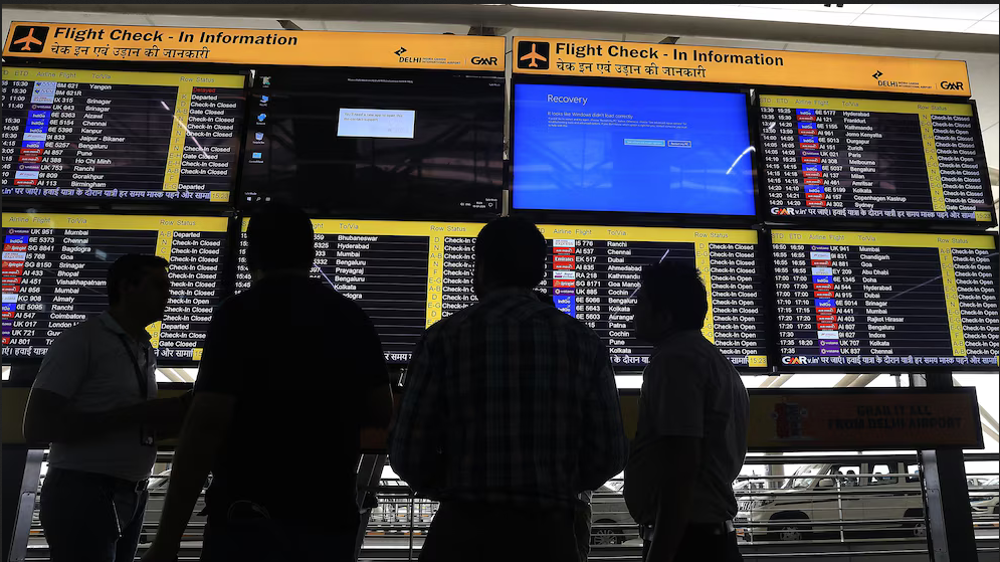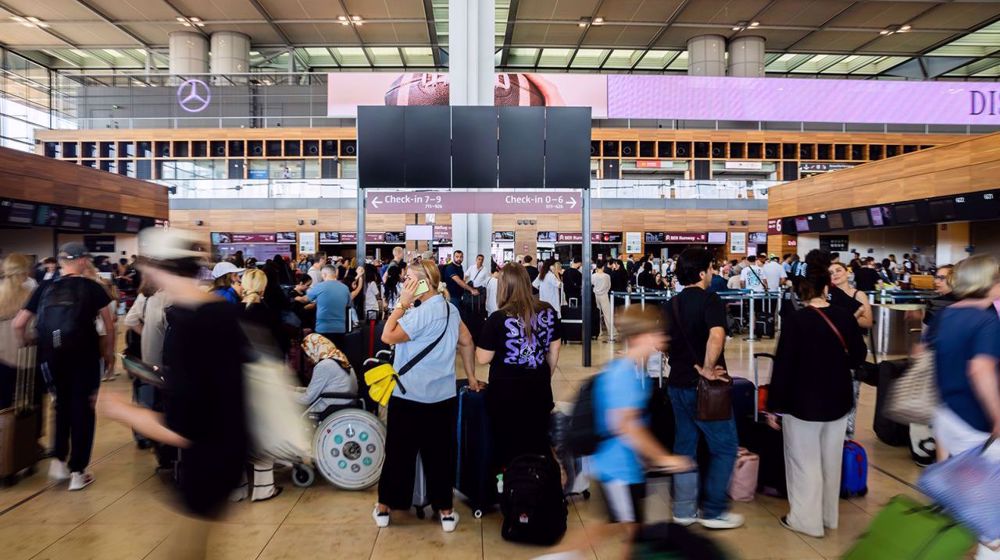‘Now or never’: UN report warns of narrow path to avert climate catastrophe
The United Nations (UN) has warned that humanity has fewer than three years to halt the rise of planet-warming carbon emissions and under a decade to slash them almost in half before reaching catastrophic levels as the issue of global warming seems to have received less serious attention.
The UN's Intergovernmental Panel on Climate Change (IPCC) said in a landmark report on stopping global warming on Monday that current policies are leading the planet towards catastrophic temperature rises.
"We are at a crossroads," said IPCC chief Hoesung Lee. "The decisions we make now can secure a liveable future. We have the tools and know-how required to limit warming."
The 2,800-page report said there are solutions but they touch on virtually all aspects of modern life and require significant investment and need "immediate action.”
The IPCC said the very first item on the global to-do list is to stop greenhouse gas emissions from rising any further, adding that the measure must be taken before 2025 to catch up with the less ambitious warming targets of the Paris deal of two degrees Celsius above preindustrial levels.
Scenarios of catastrophic 2.5 degrees Celsius of warming also have emissions peaking within three years, the report said. Carbon emissions need to drop 43 percent by 2030 and 84 percent by mid-century to meet the more ambitious Paris goal of 1.5 degrees.
"It's now or never, if we want to limit global warming to 1.5C," said Jim Skea, a professor at Imperial College London and co-chair of the working group behind the IPCC’s report. "Without immediate and deep emissions reductions across all sectors, it will be impossible."
The 1.5-degree target is presently "beyond reach", even with the most updated global climate pledges, the IPCC said, adding that to get there the world must radically reduce the fossil fuels behind the lion's share of emissions. Nations should stop burning coal completely and slash oil and gas use by 60 and 70 percent, respectively, to keep within the Paris goals, the IPCC said.
The report warned that current fossil fuel infrastructure, if used to the end of its expected lifetime without capturing carbon emissions, would make it impossible to limit global warming to 1.5 degrees Celsius above the preindustrial levels.
While government policies, investments and regulations will propel emissions cuts, the IPCC made clear that individuals can also make a big difference.
"Rapid and deep changes in demand make it easier for every sector to reduce greenhouse gas emissions," including construction, food consumption and transport, the IPCC said.
The IPCC has published a trilogy of mammoth scientific assessments covering how greenhouse gas emissions are heating the planet and what that means for life on Earth. The latest outlines what we can do about it. The report, as UN Secretary General Antonio Guterres said, is by far the most comprehensive assessment of how to stop global warming and documents “a litany of broken climate promises.”
"Some government and business leaders are saying one thing -- but doing another. Simply put, they are lying. And the results will be catastrophic," Guterres said in a video message released at the same time as the UN report.
Hamas: Death of leader in Israeli jail amounts to murder
EU sends €1.5 billion to Ukraine from frozen Russian assets
VIDEO | Millions of Yemenis rally for Gaza, call for more anti-Israel operations
UN chief calls for Olympic truce as games begin in Paris
Paris Olympics begin as sports world reeling from loss of 400 Palestinian athletes in Gaza war
Iran warns ‘sworn enemies’, says sidekicks of US, Israel ‘displaced’ with bloody hands
New British govt. bends, drops plan to challenge ICC over Netanyahu arrest warrant
Tehran: Israel anti-Iran claim at Olympics aims to divert world attention from Gaza genocide










 This makes it easy to access the Press TV website
This makes it easy to access the Press TV website